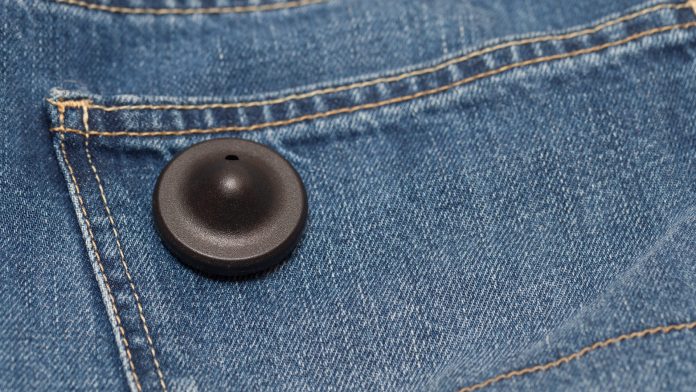Researchers at the University of Sussex have developed an ink using nanotechnology that reduces metal waste in the retail industry.
Following the £8m ESRC investment in Digital Futures at Work Research Centre, University of Sussex academics and an innovative SME have collaborated with the world’s largest retail company to understand how quantum digital technology could change the face of employment in the retail sector while also reducing metal waste.
University academics and Advanced Material Development (AMD) are working with Quantum Physics researchers, sociologists at the University of Sussex Business School digit centre and Walmart to understand how more environmentally-friendly radio-frequency identification (RFID) tags are developed, implemented and affect employment in the retail sector.
Professor Alan Dalton, a materials scientist at the University of Sussex, and his research team have created an alternative to the metal tags on clothing and food by developing antennas based on graphene inks which can be printed onto paper creating a sustainable solution to an essential part of the retail supply chain.
“There’s no need now for the old fashioned supermarket tags”
Professor Alan Dalton from the School of Mathematical and Physical Sciences at the University of Sussex said: “The nanotech ink we create in our lab has loads of important, sustainable applications.
“We’re excited that our world-leading research has paved the way for Walmart and other retailers to bin metal-dependent tags and replace them with our much more eco-friendly answer.
“There’s no need now for the old fashioned supermarket tags of the past to populate landfill sites.”
The global RFID market was estimated to be worth US$11bn in 2018 and is predicted to increase to US$13.4bn by 2022.
John Lee, CEO of AMD, said: “Our work at Sussex in the field of highly conductive inks has partly been driven by demands from the retail industry searching for a sustainable solution in the replacement of metal content in RFID antennas.
“We are continuing to improve our technology for our partners in this space, with a possible large scale print trial this year, and the opportunity to work with a company with the global impact and sustainability reputation of Walmart is a substantial boost and support of the need for us.”







